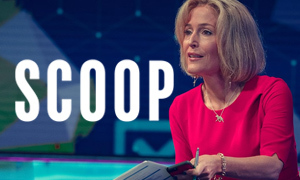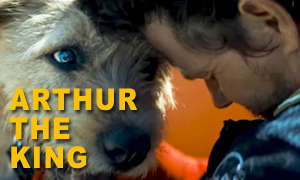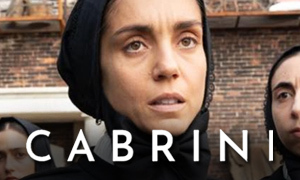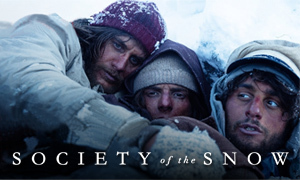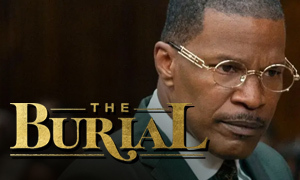Victoria and Abdul: History vs. Hollywood
| REEL FACE: | REAL FACE: |
Judi Dench
Born: December 9, 1934 Birthplace: York, North Yorkshire, England, UK | Queen Victoria
Born: May 24, 1819 Birthplace: Kensington Palace, London, UK Death: January 22, 1901, Osborne House, Isle of Wight, UK Reign: June 20, 1837 – January 22, 1901 |
Ali Fazal
Born: October 15, 1986 Birthplace: Lucknow, India | Abdul Karim
Born: 1863 Birthplace: Lalitpur near Jhansi, British India Death: April 1909, Agra, British India Secretary to Queen (1892 – 1901) |
Adeel Akhtar
Born: September 18, 1980 Birthplace: London, UK | Mohammed Buksh
Birthplace: India Servant |
Eddie Izzard
Born: February 7, 1962 Birthplace: Aden, Yemen | Bertie, Prince of Wales (King Edward VII)
Born: November 9, 1841 Birthplace: Buckingham Palace, London, UK Death: May 6, 1910, Buckingham Palace, London, UK |
Tim Pigott-Smith
Born: May 13, 1946 Birthplace: Rugby, Warwickshire, England, UK Death: April 7, 2017, Northampton, England, UK | Sir Henry Ponsonby
Born: December 10, 1825 Birthplace: UK Death: November 21, 1895, UK The Queen's Private Secretary (1870 – 1895) |
Olivia Williams
Born: July 26, 1968 Birthplace: Camden Town, London, England, UK | Jane Spencer, Baroness Churchill
Born: June 1, 1826 Birthplace: UK Death: December 24, 1900, Osborne House, Isle of Wight, UK Lady of the Bedchamber (1854 – 1900) |
Michael Gambon
Born: October 19, 1940 Birthplace: Cabra, Dublin, Ireland | Lord Salisbury (Prime Minister)
Born: February 3, 1830 Birthplace: Hatfield, Hertfordshire, UK Death: August 22, 1903, Hatfield, Hertfordshire, UK |
Paul Higgins
Born: abt 1964 Birthplace: Lanarkshire, Scotland, UK | Dr. James Reid
Born: October 23, 1849 Birthplace: Ellon, Aberdeenshire, Scotland, UK Death: June 28, 1923, UK |
Fenella Woolgar
Born: August 4, 1969 Birthplace: London, England, UK | Harriet Phipps
Born: 1841 Death: March 7, 1922 Confidential Attendant of Queen Victoria |
Did Abdul Karim come to England to present the Queen a ceremonial coin?
Not exactly, or at least not entirely. Prior to arriving in England, Abdul Karim had worked as a prison clerk in Uttar Pradesh, India, which had been under formal British rule for close to three decades. According to the Victoria and Abdul true story, the jail's superintendent, John Tyler, had met the Queen at the Colonial and Indian Exhibition of 1886, where he showcased carpets the inmates had made as part of a rehabilitation program. The Queen was impressed and asked Tyler to select two Indian attendants to help her at her Golden Jubilee, which marked fifty years of being on the throne. She wanted help communicating with the Indian dignitaries in attendance. In part due to his tallness, Abdul Karim, then 24, was chosen. In the movie, he first presents a newly minted ceremonial coin to the 81-year-old Queen. -Smithsonian Magazine
Did Queen Victoria's staff really bring her a mango from India?
Yes, this actually happened. Shrabani Basu, author of the book Victoria and Abdul: The True Story of the Queen's Closest Confidant, told TIME Magazine, "Queen Victoria's staff did bring her a mango from India. Karim told her it would be rotten but she really wanted to try one. Her staff had one sent over, but of course it took six weeks to arrive and went off in the meantime."
Did Abdul Karim teach Queen Victoria Urdu?
"Am learning a few words of Hindustani to speak to my servants," Victoria noted in her diaries. "It is a great interest to me, for both the language and the people." She also insisted that Karim speed up his English lessons, so that they could communicate better. -Vanity Fair
Did Queen Victoria's relationship with Abdul Karim ever become romantic?
Like in the Victoria and Abdul movie, our fact-checking of the true story confirmed that there is no evidence to suggest that her relationship with Karim ever turned romantic. After author Shrabani Basu was contacted by Karim's family (who she had almost given up looking for), they shared his diaries with her in 2010. His writings suggested nothing romantic. However, his friendship with Queen Victoria was still unusually intimate, as evidenced by the correspondence displayed below. The two even spent a night together at Glassat Shiel, a remote cottage in Scotland where she had previously stayed with her late servant John Brown (another subject of controversy). -Smithsonian Magazine
"I am so very fond of him," Victoria wrote of Karim. "He is so good and gentle and understanding . . . and is a real comfort to me." Author Basu told The Telegraph that Karim spoke to Victoria not as a Queen, but rather as a human being and he was one of the only people in her life to do so. Her own children even kept their distance from her. Despite their closeness, Basu doesn't believe that they had a physical relationship.
Was Abdul Karim married?
Yes. Karim was married to Rashidan Karim. When he expressed that he wanted to go back to Agra to be with his wife, Victoria invited her to come to England to live with her husband. She gave them homes on all of the key royal estates in the United Kingdom and land in India. She even offered them conception advice, telling Karim and his wife, "She should be careful at the particular time every month not to tire herself." Victoria likely had some knowledge on the subject since she had nine children of her own. -The Telegraph
Was Queen Victoria really the anti-racist progressive that the movie makes her out to be?
Not likely. When it comes to historical accuracy, the biggest issue that most critics have with the film is its portrayal of Victoria as a progressive who holds strong anti-racist views. The movie proposes that her appointment of a Muslim to a key position in the Royal Household was a win for diversity, a cause for which she is depicted as a champion. Certainly the current political climate may have helped to shape this, positioning Victoria (Judi Dench) as the righteous leader who denounces racism and intolerance. Critics haven't held back, calling the movie's characterization of Victoria "peculiar," "laughable," and "fiction," citing that the film attempts to lecture us about today's Islamophobia. But what do we know about Victoria and this time period that makes the movie's characterization of Victoria untrue?
This Era in England's history is known as the Raj era, a period that was largely defined by imperial oppression of India and its citizens, who were under the direct rule of Britain. The film ignores the subjugation going on outside of Britain and the palace walls. Instead, it narrows the focus and keeps our eyes on the relationship between Queen Victoria and Abdul, not the United Kingdom and its colonies, which the Queen oversaw. She had in fact been in power during such events as the Indian Rebellion of 1857, which found rebels in India rising up against Crown rule, which up until that point had been enforced by the British East India Company and its private army. A good number of Indians were unhappy with steep land taxes and invasive British-based social reforms.
Even after the rebellion (which the British suppressed), when Britain ruled directly, taxes were still high and the British depleted Indian revenues to fund an inflated bureaucracy (including in London). A great racial divide emerged between Indians and the class-conscious Britons. The divide lasted until the end of the British Raj in 1947, long after Queen Victoria's passing. So if the movie makes her out to be a champion against racial intolerance, it can certainly be argued that she didn't do enough to improve racial equality outside the palace walls. Yet, we must also remember that the Queen, who was known for her high moral standards, had influence but little direct political power since the United Kingdom was already a seasoned constitutional monarchy by that point. -BBC
Was the real Abdul Karim as saintly as the movie portrays him?
No. In the movie, Abdul Karim is portrayed as wise and passive instead of ambitious and at times self-serving. "Whatever Her Majesty wants" is the tone of his character. In researching the Victoria and Abdul true story, we discovered that, like everyone else, the real Karim indeed had flaws.
For example, the movie implies that Queen Victoria introduced the idea of Karim being knighted herself to a shocked Royal House. In reality, Karim had worked tirelessly to convince Victoria to give him a knighthood. Another less savory side of Karim that the movie turns away from is when Victoria's doctor, Dr. James Reid (Paul Higgins), breaks the news to her that Karim, a married man, is riddled with gonorrhea. As Vulture critic David Edelstein noted, the movie pushes too much political correctness for its own good. Karim (Ali Fazal) is so saintly that he comes across as two dimensional and boring.
Was Queen Victoria aware of the racist attitudes in the palace regarding her relationship with Karim?
Yes. This was confirmed in a letter written by her assistant private secretary Fritz Ponsonby, who complained of her preferential treatment of Karim. He concluded by sharing the Queen's thoughts on the matter, "the Queen says it is 'race prejudice' and that we are jealous of the poor Munshi." The term "Munshi" is a Persian word that in British India came to mean a native language teacher or secretary employed by Europeans.
After her death in 1901, did the Queen's family really try to erase all evidence of her friendship with Abdul Karim?
It wasn't an accident that little evidence remained of Queen Victoria's close friendship with Abdul Karim. After her 1901 passing, her family members, along with others in the Royal House, scrambled to destroy all traces of her closeness to Karim. According to The Telegraph, Victoria's son Bertie (King Edward VII) quickly ordered that all letters between Victoria and Karim found on the royal grounds be burned. Karim was evicted from the home Victoria had given him and he was deported back to India. Her daughter Beatrice embarked on the arduous task of erasing all mention of Karim from the Queen's journals, which encompassed more than a decade of her writings since that's how long he had been a part of her life. -Vanity Fair
Why was Queen Victoria's friendship with Abdul Karim so controversial?
Obviously, it wasn't merely because they were of a different social status. Historians note that Victoria's family and staff exhibited both racial and social prejudices. Compounding that was their jealousy of Karim. He was afforded privileges they weren't, such as traveling with her through Europe; honors; titles; personal gifts; a private carriage; and the best seats at banquets and opera houses. As indicated in the previous question, she also commissioned several portraits of Karim, in addition to recruiting local journalists to write about him. She hosted his visiting family members and even helped Karim's dad secure a pension. Since the passing of her Scottish confidante John Brown in 1883, Karim was the only servant who she welcomed into her inner circle. -Vanity Fair
For the dark-skinned Karim to eat at the same table as the white servants was intolerable, notes historian Carolly Erickson in her book Her Little Majesty. The idea that he partook in daily duties alongside them was seen as an outrage.
Did Judi Dench play Queen Victoria before?
Yes. Dench starred as Victoria 20 years earlier in the 1997 movie Mrs. Brown, which explored the close relationship she had with her Scottish servant and confidante John Brown following the death of her husband Albert. The movie's title refers to the nickname that other staff members gave the Queen behind her back. Like her friendship with Abdul Karim, her relationship with John Brown, portrayed by Billy Connolly in the film, was not approved of by the royal court. However, it wasn't nearly as detested, mainly because Brown was a white European and not a dark-skinned Indian. -Vanity Fair
Victoria & Abdul Trailer and Related Videos
Watch the Victoria and Abdul movie preview below.
Link-to-Learn More:
